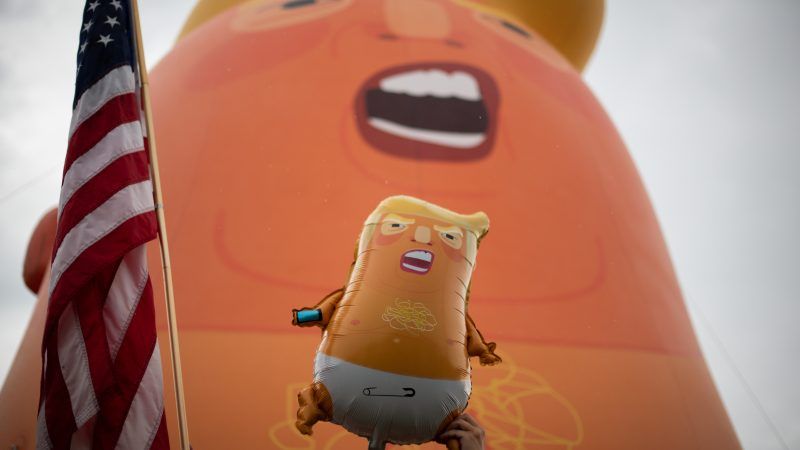As Trade War Escalates, Trump Has Impotently 'Ordered' American Businesses Out of China
Trump's economic nationalism has always been an exercise in petty authoritarianism, and it's increasingly difficult to see it as anything else.

President Donald Trump's trade policies have always been, at their core, an exercise in centrally planned economics and petty authoritarianism.
Every time the president rage-tweets about "America First" economics or makes unverified promises about how his tariffs will bring jobs back to the United States, what he's really saying is that the federal government knows how to construct international supply chains better than private businesses do. Each new round of tariffs is a way of punishing American companies for prioritizing the interests of their customers by sourcing goods in the most cost-effective way. When White House economic advisors like Peter Navarro question the patriotism of American CEOs who do businesses in China, the subtext is that private businesses should operate as the president sees fit, not as their shareholders, executives, and managers do.
If there was any doubt about those conclusions, Trump squashed it on Friday.
….better off without them. The vast amounts of money made and stolen by China from the United States, year after year, for decades, will and must STOP. Our great American companies are hereby ordered to immediately start looking for an alternative to China, including bringing..
— Donald J. Trump (@realDonaldTrump) August 23, 2019
I mean…c'mon. "American companies are hereby ordered to immediately start looking for an alternative to China." Even coming from the most powerful elected official on the face of the Earth, that comes off as a tantrum of petty tyranny.
It's also a sign that even the American presidency is largely impotent in the face of the market mechanisms Trump imagines he can alter with a tweet. Indeed, if the tariffs were working the way Trump claims, there would be no need for him to "hereby order" American businesses to do the very thing the tariffs are supposed to be compelling them to do.
The president can't reorder global supply chains with the snap of a tweet, but his trade policies are continuing to damage global markets. The Dow Jones Industrial Average plunged 500 points after Trump's "hereby ordered" tweet—a signal, perhaps, that the stock market understands the effectiveness of central planning. Meanwhile, China has threatened to escalate the trade war on September 1 if Trump goes ahead with plans to impose a new round of 10 percent tariffs on about $300 billion of Chinese imports. On Friday, China's government announced new tariffs on American cars, oil, and industrial goods—expanding its retaliatory efforts beyond farm goods for the first time.
"The fact of the matter is that nobody wins a trade war, and the continued tit-for-tat escalation between the U.S. and China is putting significant strain on the U.S. economy, raising costs, undermining investment, and roiling markets," said Myron Brilliant, head of international affairs for the U.S. Chamber of Commerce, in a statement.
The president's orders are unlikely to make it any easier for American companies to shift production out of China. In some cases, the tariffs have encouraged manufacturers to shift production to India, Vietnam, and even Mexico—but that's merely an acceleration of shifts that were already ongoing before the trade war, according to A.T. Kearney, a manufacturing and trade consulting firm whose annual "Reshoring Index" measures domestic manufacturing of consumer goods against imports of the same products from 14 lower-cost countries in Asia. Vietnam's exports to the United States have doubled since 2013, for example, but the rate of growth skyrocketed during the first quarter of 2019.
Those higher input costs have harmed American manufacturers who import component parts—companies like the Wisconsin-based Primex Family of Companies, which has been doing business in China for 30 years. The "indirect costs" of the trade war, such as the pressure to alter supply chains, have been "enormous," CEO Paul Shekoski told Reason last week.
If Trump wanted to help American businesses, he would end his destructive and increasingly erratic trade war instead of rage-tweeting "orders" that would be easier to laugh at if they weren't further a further demonstration of how little he knows about what he imagines he can design.
Even as the tariffs fail to achieve their goals—while imposing immense economic costs along the way—there can be no doubt about the fundamental authoritarianism at the center of the economic nationalism project. That mask started slipping long ago. Today, Trump yanked it off.


Show Comments (247)